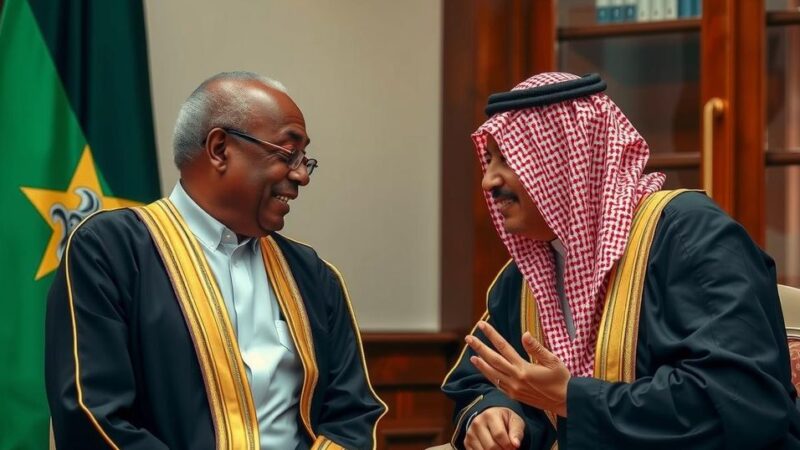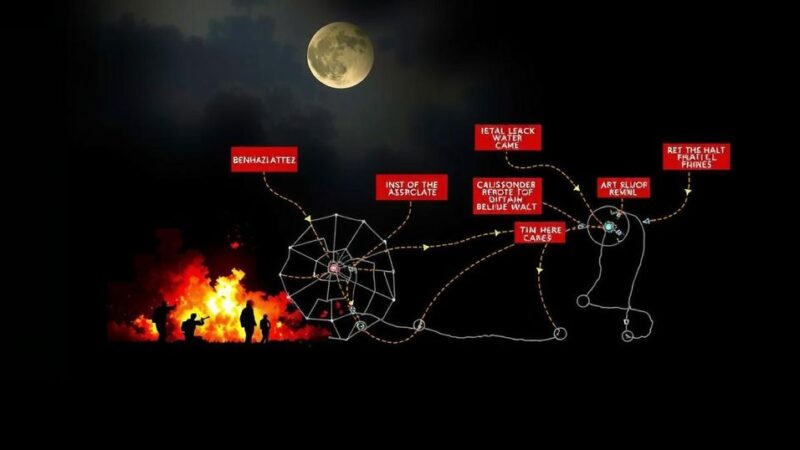The Israel Defense Forces have intensified their military offensives in Lebanon, targeting soldiers and medics in Beirut, while carrying out an airstrike in Tulkarm, West Bank, killing at least 18 people. The ongoing conflict, which began with a Hamas attack on October 7, has led to significant casualties and displacement throughout the region, amidst heightened tensions involving Hezbollah and the persistent humanitarian crisis in Gaza.
The Israel Defense Forces (IDF) have significantly escalated their military operations in Lebanon, conducting strikes that impacted soldiers and medics within Beirut’s southern suburbs. Concurrently, the IDF reported a separate airstrike conducted in Tulkarm, West Bank, aimed at the regional leader of Hamas, which resulted in the deaths of at least 18 individuals according to Palestinian officials. This recent surge in hostilities is part of the broader and ongoing Middle East conflict, following the initiation of war on Hamas by Israel on October 7, which saw Hamas militants execute an unprecedented cross-border attack that claimed the lives of approximately 1,200 people and took numerous civilians hostage. The conflict has led to one of the largest displacements in the region since Israel’s establishment in 1948. The situation has further deteriorated with heightened tensions between Israel and Hezbollah, a militant organization supported by Iran. This escalation has triggered an Israeli invasion of southern Lebanon, resulting in intensified airstrikes that have cost over 1,400 lives, including the death of Hasan Nasrallah, Hezbollah’s long-standing leader. Moreover, the Gaza Strip continues to suffer under what has been described as one of the most devastating wars of this century, with tens of thousands of casualties and many inhabitants facing famine-like conditions. Despite mounting criticism from some Western allies, Israel has resisted calls to facilitate greater humanitarian aid deliveries to Gaza. The United States maintains its support for Israel, providing military aid and resources, while at times navigating complicated political relations, particularly with Israeli Prime Minister Benjamin Netanyahu and various U.S. political figures. The historical context of the Israeli-Palestinian conflict is deep-rooted and complex, predating the establishment of the state of Israel, further complicating efforts towards resolution and peace in the region.
The ongoing conflict in the Middle East is marked by a long history of tension stemming from the Israeli-Palestinian conflict, which dates back prior to the founding of Israel in 1948. The October 7 assault by Hamas highlighted the volatile nature of the situation, leading Israel to declare war in retaliation. Since then, the violence has spread into Lebanon and the Gaza Strip, significantly affecting civilians and exacerbating humanitarian crises. In recent months, the role of external actors, such as Hezbollah and the United States, has further influenced the conflict dynamics, adding layers to an already complex geopolitical landscape. Both Israeli and Hamas forces continue to suffer heavy casualties, illustrating the profound devastation wrought by this ongoing violence.
In summary, the escalation of military operations by the Israel Defense Forces in Lebanon and the intensified conflict with Hamas and Hezbollah illustrate the deepening crisis within the region. The humanitarian toll is grave, with substantial loss of life and widespread suffering among civilians in both Gaza and Lebanon. The U.S. continues to play a significant role, albeit amidst rising tensions with certain political figures. The historical complexities of the Israeli-Palestinian conflict further complicate the pursuit of peace, underscoring the urgent need for meaningful dialogue and resolution.
Original Source: www.washingtonpost.com






